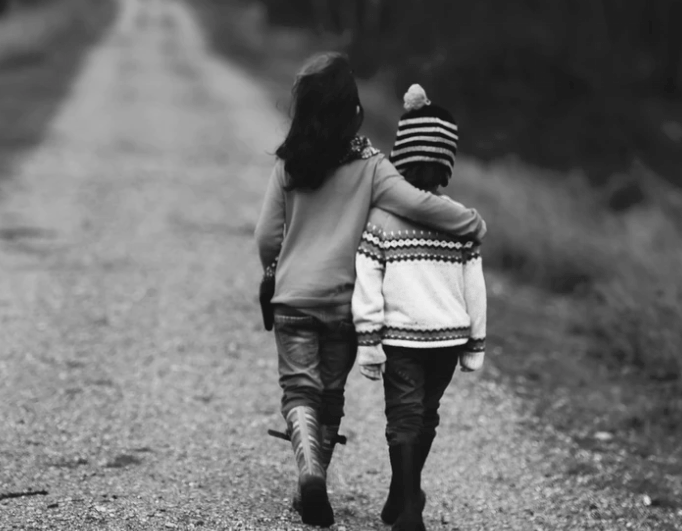
Humans are much more than opinions on a screen. (Image Credit: Unsplash/Annie Spratt)
I have a quote on the home screen of my phone that I put up a year ago. I came across it on Instagram, where all good and terrible things scroll in random order with impunity.
But this quote grabbed my soul.
"Do not let the world make you hard.
Do not let the pain make you hate.
Do not let the bitterness steal your sweetness."
For the last 365 days, those words by Kurt Vonnegut have been my mantra.
We are in a pocket of time right now where our communities are hurting deeply. We are also angry. It's an emotionally volatile time where we are all being pushed and challenged and have ALL THE FEELS. The feels are important. Feelings of offense help us determine where the true north of our moral compass points. Feelings of anger propel us to defend what we believe is right and fair. Our grief can connect us to each other in wordless understanding.
But the feelings are big and strong, and they are plentiful. All of them.
It's easy to get lost in the vast landscape of feelings. And we are prone to act our feelings out, sometimes appropriately, and sometimes not so much.
We can have our feelings and still be responsible with them. It's a hard line to walk, but it's possible.
1. Recognize that we are all hurting.
There is so much division right now, and middle ground seems like a destination that Apple Maps refuses to recognize. It's not up to us to validate or invalidate anyone's suffering except our own.
2. Every person desires to be seen.
You have an opinion. I do, too. We probably have lots of them. Some of them might be congruent; some might be in total opposition to each other. It doesn't matter. They are opinions; they are not people. Make it a point to look past the opinion and listen beyond the rhetoric. Look for the human in everyone, even those who oppose you. Most of the time, it's there. And most of the time, it will connect us even when we disagree.
3. Social media is an incomplete picture.
There's this really awful thing happening in our country where we've stopped seeing each other. We take Facebook statuses and comments as gospel truth about other people and form entire mental pictures about who people are based on a very small sampling of information about beliefs, lifestyle, anecdotes, and preferences. It's not the truth, though. At least, not the whole truth. And probably not the part of the truth that matters most. Our worlds, even though they are largely available for pursuing online, are not that small. Don't fall for that trick.
4. Put your phone down and be with Real People.
I have a lot of "pocket friends," and unless you have learned to defy the physics of time and space and live in a completely other dimension and somehow are reading this telepathically from a worm hole, you do, too. Because our worlds are largely centered around technology, we forget to tune into each other in real life. This screen is not the most important thing. People are. Unplug for an hour, a day, a week. (Pro tip: It's much easier to see each other when we aren't putting screens in front of our faces.) True connection is hard. Do it anyway.
5. Find your mantra.
Maybe it's cheesy, maybe not. Who cares? Try it anyway. As it turns out, there are literal boatloads of people who have experienced the best and worst of the human experience, and some of them even went so far as to write down their thoughts and feelings about it. Borrow a phrase, an inspiration, a line of poetry, a word, a quote, a picture. Whatever. Find those words or symbols that keep you grounded and on course.
6. Remind yourself that you are still you.
And don't let go. Keep grinding, keep refining, keep searching and growing. But don't let go of yourself to hold on to someone or something else. The world needs you, in your imperfections, in your constantly evolving state, in your core being of who you've always been and who you'll always be. Don't give that person up. Be ferocious about you.
Stay soft.
Be love.
Remember the sweetness of being alive.







